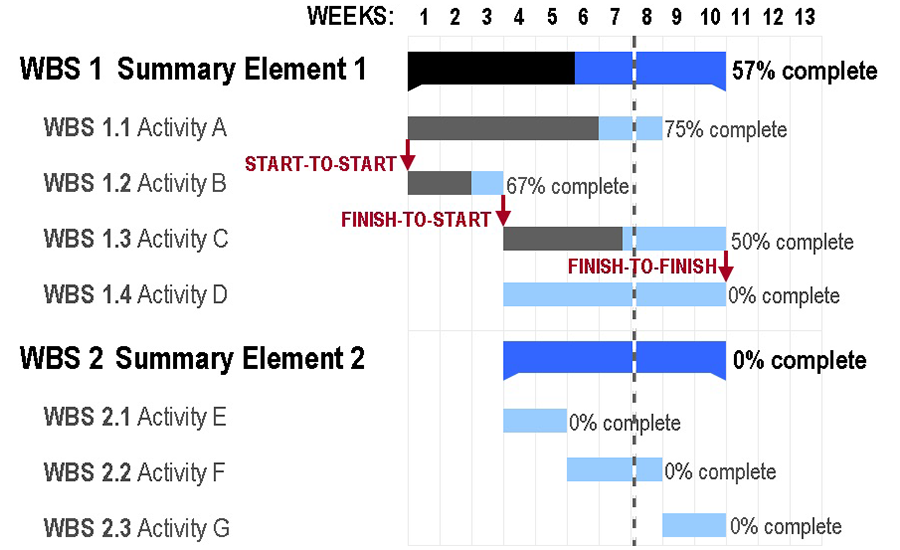Would you allow the owner to select the estimator and estimating software to prepare your change-order proposals?
So why do contractors so often allow the owner to select the personnel and software to prepare, update and analyze the contractor’s project schedule?
The problem begins with the specification of owner requirements. The owner may select the software, possibly including option switches, without thought by “cutting and pasting” from a different and possibly inapplicable project. Or the owner may choose based on specific (and possibly non-project related) needs.
Or the owner may be hoping to "game" any analysis of potential claims. Do any of these reasons promote contractor needs?
Selection of the personnel begins with requirement of a relatively low quality critical-path method logic plan, possibly coupled with a high level of non-schedule-related data entry. If the first item of instructions relates to cost codes and cost loading, this does not bode well for an analysis to best bring the project in on time.
Excuse to Reject Submittal
The logic network is rarely reviewed other than by analysts searching for anomalies; the machine-calculated and plotted bar chart is reviewed only to check against pre-conceived guestimates; but let one activity not show a minor piece of equipment (such as a plate compactor) or non-construction obligation (such as cleaning the field office of the engineer) and the owner has a reason to reject the submittal.
With such a low level but finicky requirement, the contractor may easily shop around for a lowest bidding or DBE subcontract consultant. Or perhaps internally by the newly hired recent graduate quickly trained to be a screen jockey. Even with the best and most seasoned professionals, the banality of the specified requirements often precludes inspired planning.
What can be done and what should be done?
If not faced with a requirement for a proper CPM submittal, some contractors may choose to plan their work with a bar chart or no plan at all. Amazingly, some do not go bankrupt.
Many more will prepare a proper CPM to an internal company standard level of care. They are usually more profitable. What many of these firms do when faced with a low level but finicky requirement is add funding to the bid to so prepare and submit, but keep in funding for their core requirement and operational CPM scheduling. Two schedules - one by and for the owner and one by and for the contractor’s own operational use.
Dual or Ghost Schedules
The concept is sometimes called dual schedules or ghost schedules or other names.
There are two thoughts whether to share a copy of the unofficial schedule with the owner. My advice is to share. but marked as for information only and not as a formal submittal. There will be additional cost in updating each system, but that should be included in the bid. Updates for the owner are usually monthly based upon the progress payment cycle. Updates for the contractor should (in opinion of this author) be weekly and geared to next be used to provide the weekly short term operational schedule.
The CPM schedule should always provide for more work in the coming week that may be performed; the short-term schedule includes the weekly assessment of choosing which of these options to plan to perform this coming week and which work (having float) to be deferred to best balance use of resources. Obviously the record keeping for weekly updates will assist in preparation of monthly updates although there will still be effort required where the owner specified CPM has demanded certain activities be merged or split or added to support their cost system.
Why should a contractor waste money on a proper schedule when already having one prepared for the owner which, if not perfect, is still usable?
Imagine a specification calling for a Monday-morning safety meeting composed entirely of having the crafts gather to sing religious hymns invoking safety on the job. Most contractors would add funding to their bids to meet this requirement but still keep funding for their own safety meeting.
Many of the owner-directed specifications for a progress schedule that I have had to review do less to bring a project to timely completion than those Monday morning hymns do for keeping our craft workers safe.
Sign Up Now for the Next Construction CPM Conference
Our next Construction CPM Conference will be held at the Swan Resort at Disney World FL from January 10-13, 2017. We moved our date to this time as requested by our attendees. While much of the program is set utilizing our invited speakers, we do have some room for additional presenters. Some exhibit space is still available. As always, we will have three full days of classes mixed with fun events to relax and network with peers. We provide 20+ hours towards most P.E. license renewal requirements as well as 20+ hours for attorneys (Florida and some other states) continuing education credits. See www.constructioncpm.com for more information.


Post a comment to this article
Report Abusive Comment